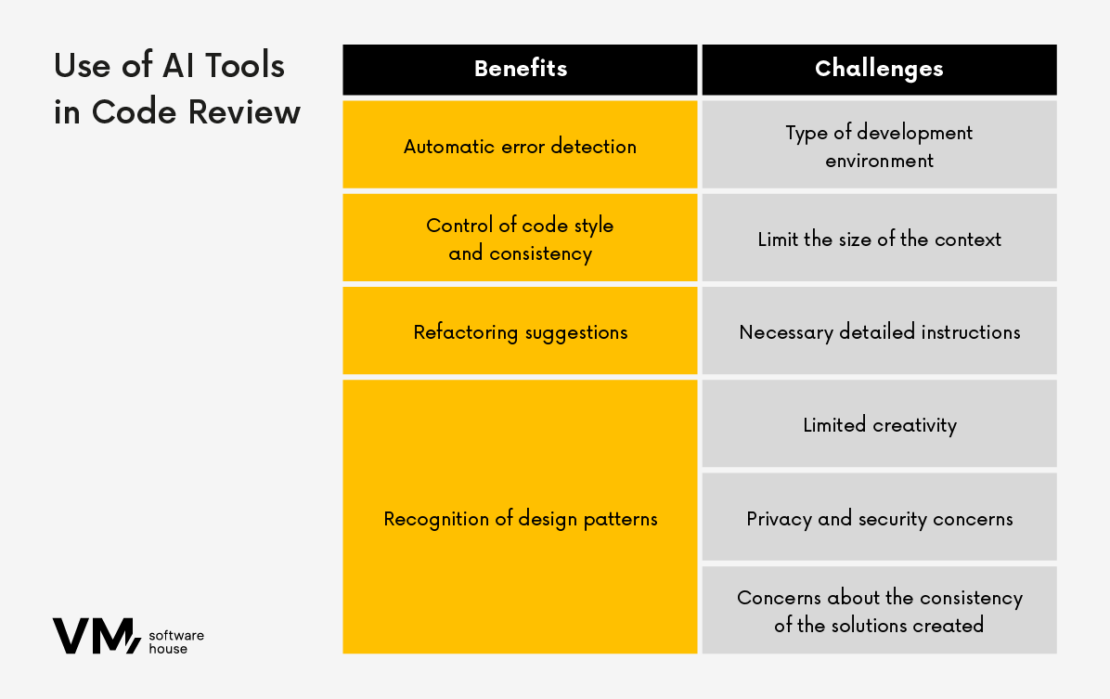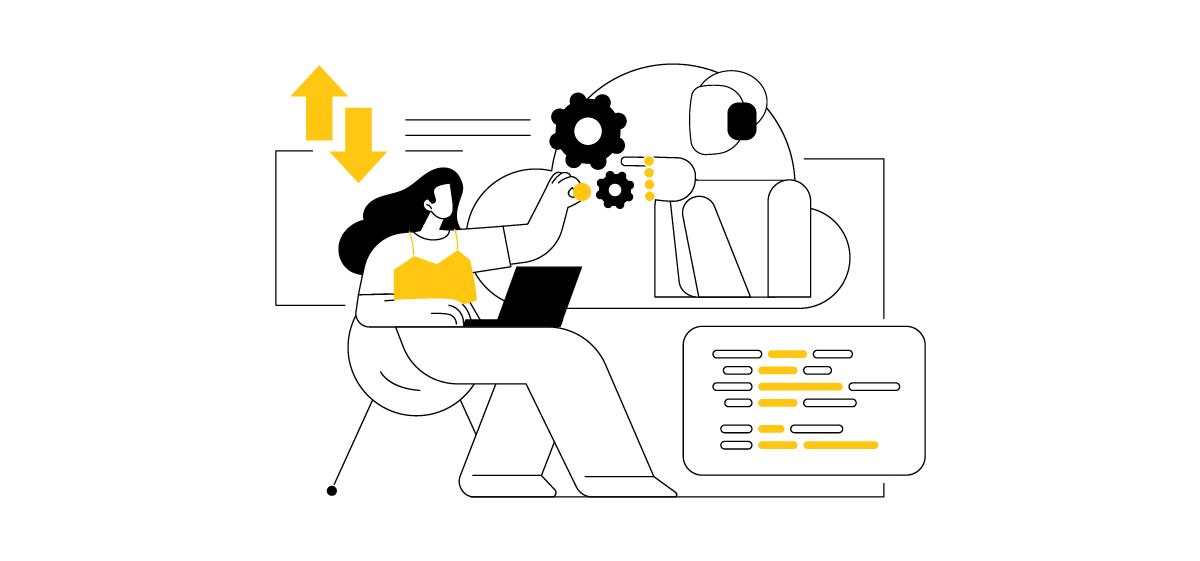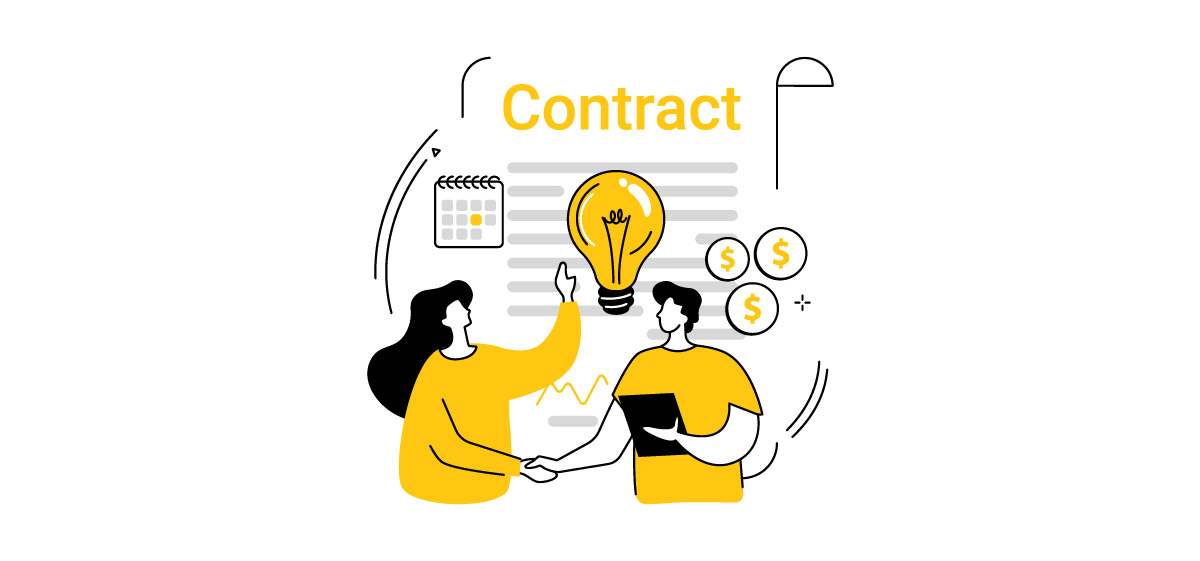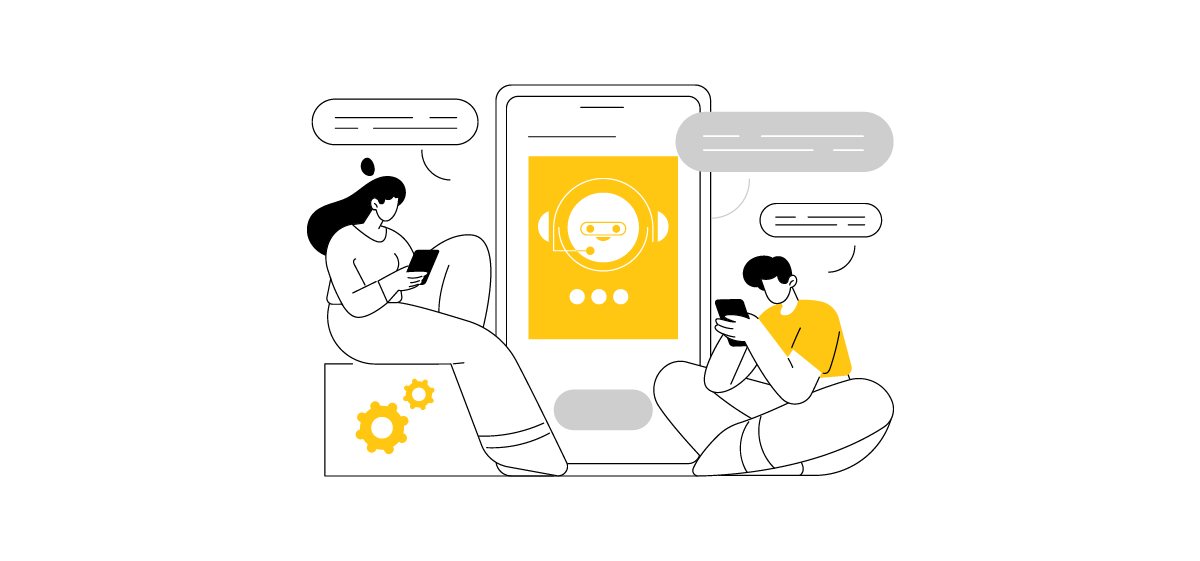
Artificial intelligence (AI) is now present in almost every field, including software development, which surprises no one. However, many developers wonder how accurate AI can be in analyzing bugs or whether it can handle context and project-specific nuances. What are AI’s limitations in automated code reviews? Does it adapt to specific coding standards and practices?
The use of AI coding tools is on the rise. In a recent StackOverflow September 2024, 76% of developers reported using or planning to use AI coding tools, up from 70% the previous year. However, developers are divided on whether to trust the results of AI: 43% have a favorable opinion of AI’s accuracy, while 31% remain skeptical. Incorrect AI suggestions can lead to erroneous conclusions, significantly affecting project functionality.
Many developers are curious about the potential benefits of AI in code review, as well as the pitfalls to watch out for. Let’s discuss some of them.
Table of Contents
Understanding AI in Code Analysis
Imagine having a smart assistant that can automatically check your software code for issues or areas for improvement. This is essentially what AI-powered code review offers. By utilizing machine learning and other technologies, artificial intelligence enhances the code analysis process, helping to develop higher-quality software. This includes automated error detection and suggestions for improving code quality, offering developers valuable insights throughout the review.
How Does AI Work in the Code Review Process?
The code review process is fundamental, but it can take as much time as code implementation—or even longer. Given the limitations of AI, most developers hesitate to fully trust AI tools for code review as a standalone solution, especially before merging pull requests.
In this discussion, we’ll approach the issue from a different perspective, exploring how AI-powered code review can assist in understanding existing code or learning from it.
Key Benefits of AI in the Coding Workflow
The use of AI tools for coding can significantly increase developer productivity. By automating tedious and repetitive tasks, AI tools enable developers to focus on innovation and dedicate more time to creative solutions.
1. Automatic Error Detection
One of the standout features of artificial intelligence in code review is its ability to automatically detect coding errors, providing instant feedback, especially during the compilation stage. However, this capability is not universal, as AI may sometimes overlook issues related to application state changes.
2. Code Style and Consistency Check
AI tools can enforce coding standards by checking code style and formatting. They flag inconsistencies to ensure everyone follows the same guidelines, which is especially beneficial in collaborative environments with multiple developers. For this to work correctly, the team must establish a standard coding style, which can then be used in prompts or as a training model for AI code quality assurance.
3. AI-Based Refactoring Suggestions
Developers play a crucial role in identifying refactoring targets. With AI code analysis, they can optimize code by leveraging artificial intelligence to suggest deeper improvements. For example, AI tools can answer questions like, “What design pattern would make it easier to add functionality here?” This enables AI to offer refactoring options that enhance performance or readability.
4. Recognition of Design Patterns
Artificial intelligence excels at recognizing patterns, an ability that translates well into code analysis. By analyzing past coding decisions and their outcomes, artificial intelligence can help predict the best approaches for new code by making recommendations based on historical data. This can lead to more informed decision-making and higher-quality results.
Challenges and Limitations of Artificial Intelligence in Code Reviews
While artificial intelligence offers numerous benefits, it’s essential to recognize its challenges and limitations. Despite the advantages of AI in code review, human involvement remains critical for understanding the nuances and intentions behind code. Let’s discuss some key challenges.
- Type of Development Environment
In the context of integrating AI code analysis tools, the development environment plays a significant role. AI tools for code review like GitHub Copilot are increasingly popular among developers. However, many developers use IntelliJ and JetBrains, which have limitations related to certain functionalities that Copilot provides in its latest releases.
Learn more about the role of the GitHub Copilot tool in the article: How Microsoft GitHub Copilot Makes a Developer’s Job Easier.
AI tools like GitHub Copilot support multiple programming languages, making them versatile for various coding environments.
- Limit on Context Size
AI tools have constraints related to the size of the context they can analyze. In Visual Studio Code, for example, the Workspaces feature allows developers to add context to a project, covering the entire project and providing more information for analysis. IntelliJ, by contrast, operates based on open windows, which add context automatically, though files can also be added manually.
However, for large projects, adding multiple files can become inefficient and lead to context size issues, a limitation of large language models (LLMs). For instance, ChatGPT-based Copilot has a limit of 32,000 tokens, while Gemini supports up to 2 million tokens. Such token limitations pose challenges in AI-powered code review for text-based analysis.
- Requirement for Programmer’s Instructions
AI may fall short if the programmer cannot clearly define their objectives. This requires users to have a good understanding of their goals and the ability to formulate clear queries.
Copilot’s “Explanation” feature can clarify how code works, but it relies on well-defined instructions. While Copilot handles simple code and infers from previous user input well, other AI tools for code review—such as ChatGPT, Gemini, and Claude.ai—often provide deeper code analysis.
However, projects with complex structures, like microservices architectures or heavy dependencies, may limit AI’s ability to create an accurate analysis context.
- Limited Creativity
Artificial intelligence code review tools lack the creativity and intuition that experienced programmers bring. They may struggle to fully understand complex code dependencies, particularly in projects with issues like poor architecture or intricate internal dependencies. This can lead to a situation where AI cannot provide valuable recommendations or analysis.
- Privacy and Security Vulnerabilities
While there are many security analysis tools available, most do not use AI due to difficulties in detecting vulnerabilities with this technology.
Experienced developers prefer to use specialized libraries, such as SonarQube, which monitor code quality, the number of tests and identify potential vulnerabilities in the libraries used.
- Consistency of Solutions
GitHub Copilot largely relies on the existing structure of the codebase and can correctly interpret the code development style of a given programmer. Since programming is highly creative work, AI must be given all relevant project and team information to minimize risks associated with inconsistent approaches to problem-solving. This helps ensure cognitive consistency across solutions within a project.

Best Use of AI in the Context of Code Quality
In the context of applying AI at work, it is crucial to understand the architecture of a project and catch the most important elements. AI tools for code review help developers identify architectural and design patterns more effectively. However, there is a risk of focusing on less significant details, which can lead to inaccurate analysis.
It’s essential to clearly define your objectives and determine what is relevant to the project before using AI. Providing information to an AI code analysis tool without careful consideration can create an illusion of quality in the responses, so additional verification is necessary. While AI code tools can assist in suggesting solutions for specific patterns, it’s important not to take these suggestions out of context.
AI tools are most effective when applied to individual system layers, such as security, authentication, or surveillance, rather than as a comprehensive solution for an entire application.
While AI code review can accurately analyze code in well-defined scenarios, it may overlook subtleties that require a deep understanding of context or intent—areas where human expertise is essential.
Effective Use of AI by Experienced Developers
Experienced developers recognize the value of AI tools when they help them achieve their goals, especially in the measurable, structured process of code writing.
Using AI tools is not a bad thing, but it is vital to use the time saved on generating code to understand how it works. AI tools that support natural language commands allow developers to interact with the code in a more intuitive and human-like manner. The biggest danger is solutions that users don’t understand, which can lead to problems, especially for inexperienced developers. Every organization should consider introducing AI to work with such people because the responsibility for code review still lies with people, and their ability to explain the code is crucial.
Thus, AI in code analysis is most beneficial when treated as a complementary tool for professionals. It allows them to minimize time spent on simple coding tasks and focus instead on understanding business processes or exploring alternative solutions. Often, a familiar solution is chosen simply because it’s known, even if it’s not the best. AI provides an opportunity to examine a project’s potential in more depth, occasionally suggesting solutions that may not have been previously considered.
If you’d like to discuss the application of AI for software development in your project, we are at your service. Contact us, and our experienced developers will be happy to answer your questions.














